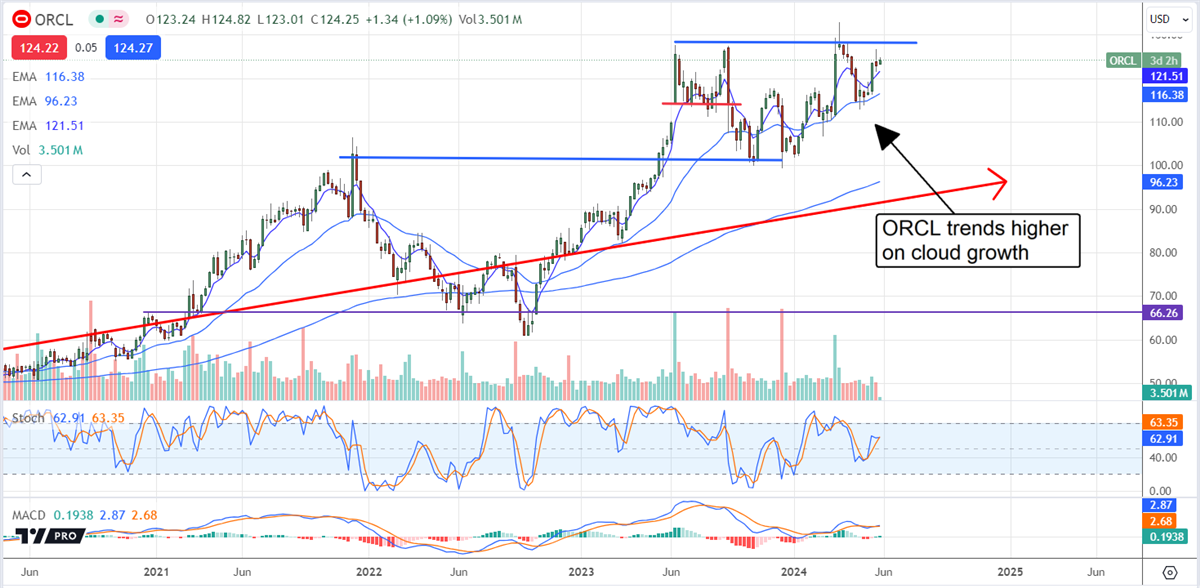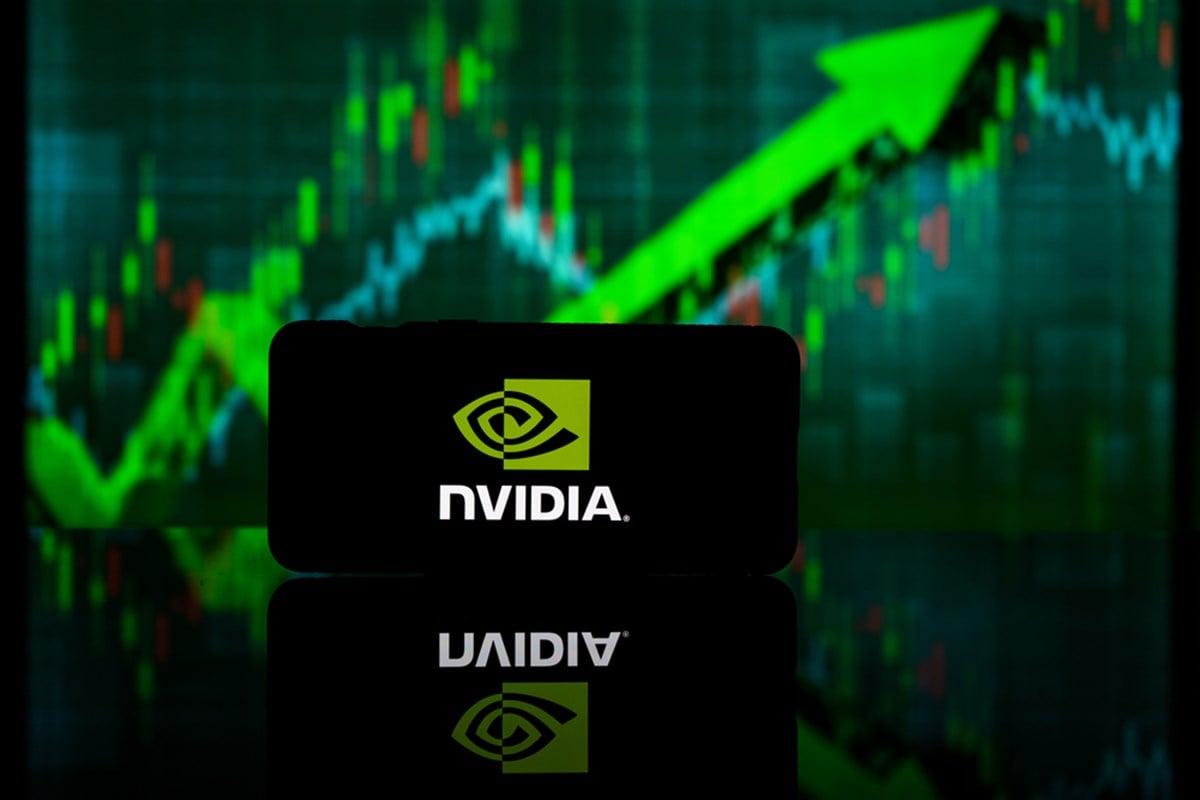
Generative AI is here and in a big way. The rise of generative AI already impacts our daily lives and will only grow as the infrastructure is built, models are trained, and applications are developed. While numerous players in AI are positioned to benefit from the boom, the blue-chip mega-cap players will be the winners in the long term. These companies have the interest and inclination to advance the technology, money, networks, and scale to make it happen. More importantly, in the case of the four stocks on this list, their offerings are in demand by the industry, setting them up to gain share and retain leading positions long into the future.
NVIDIA: The New N in FAANNG
AI launched NVIDIA (NASDAQ: NVDA) into a new ball game. What was once a niche semiconductor company is now central to the evolution of technology. Its GPUs and accelerators commanded the data center market before the rise of AI and are now in such hot demand that the company is sustaining triple-digit growth on a YOY basis and outpacing expectations.
The advantage for NVIDIA is two-fold: it has revolutionary semiconductor designs and leans into software. NVIDIA built the operating platform for its GPUs and accelerators from the start, giving it a lead over competitors racing to catch up. The result is NVIDIA’s full-stack approach to AI, which includes the chips to power it, the infrastructure to deliver it, and its services. The takeaway is that this niche company is now counted among the leading tech and Internet companies, including Microsoft, Google, and Amazon, and is considered a new "N" for FAANG, which refers to Facebook, Apple, Amazon, Netflix, and Google.
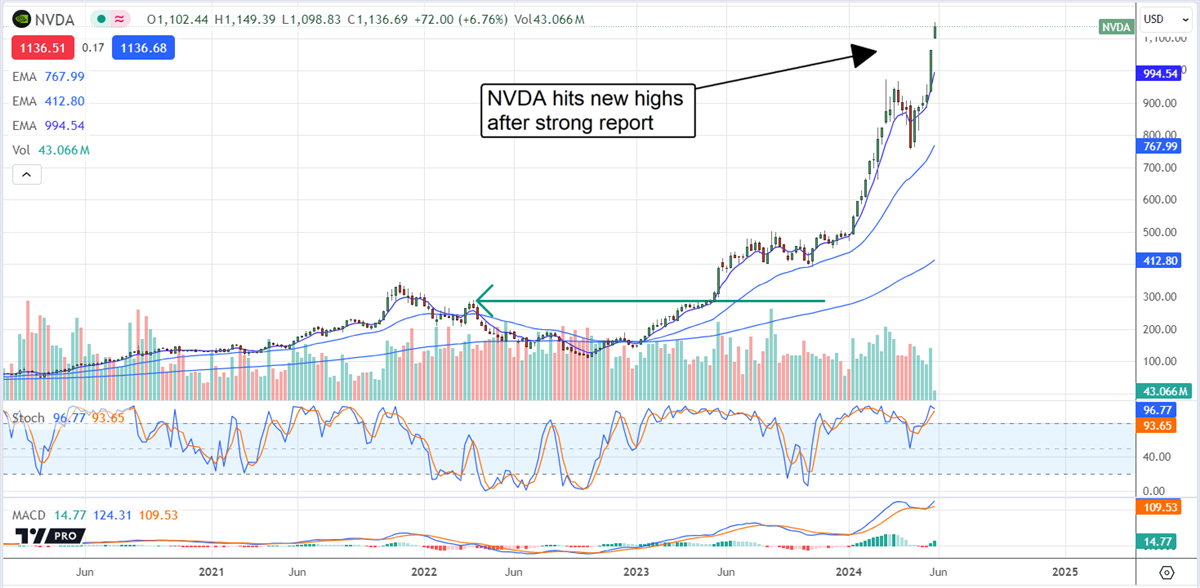
Micron: Providing Memory for AI
Micron (NASDAQ: MU) has emerged as an AI play because of memory. AI requires a lot of memory, and the newer HBM configurations work the best. Micron’s HBM3E (the latest version) is superior. Micron’s chips provide equal or superior performance with lower power consumption and less heat, making them a top choice for data center construction. Business should be solid for years because data center growth is accelerating, and a global AI-driven upgrade cycle is in play.
The company’s latest results underscore the strength of its position with end-markets normalized, and growth accelerated to nearly 60%. Growth is expected to continue at a robust double-digit pace through the end of the next fiscal year. There is some concern about patent lawsuits relating to Netlist, but they are unlikely to impact the business significantly. At least one of the underlying patents has been invalidated, and the other is under review.
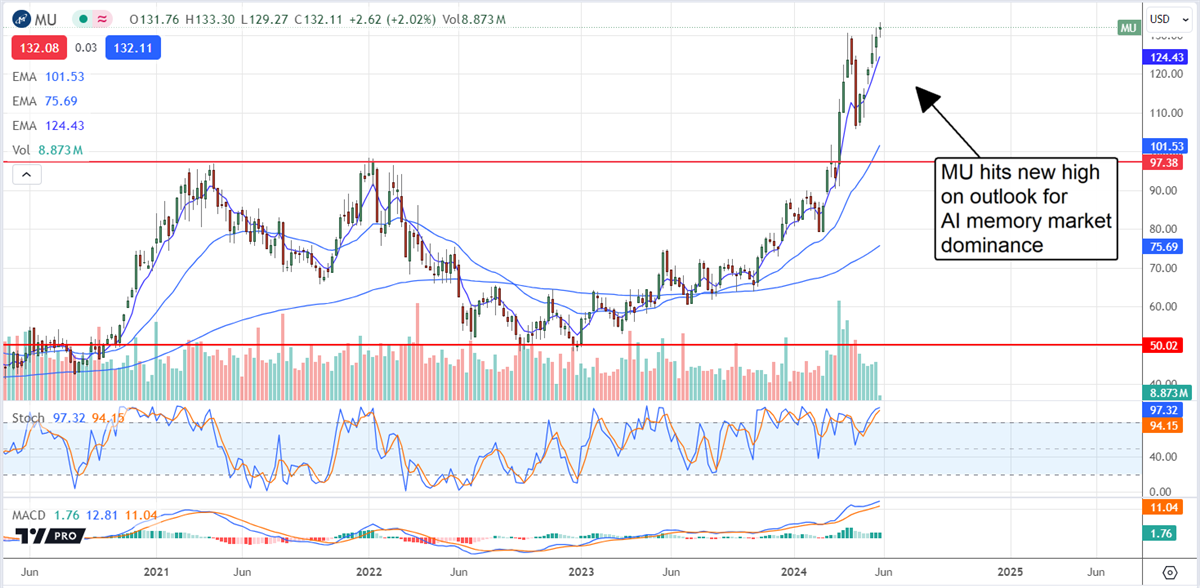
Microsoft: Moved to the Cloud at Just the Right Time
Microsoft’s (NASDAQ: MSFT) move into the cloud was timely as it set the business up to gain share with the rise of AI. Today, Microsoft’s Azure Cloud is growing across operating segments and taking market share due to its scale, utility for business (including AI training and inference), and embedding of AI services. The company commands 25% of the global data center market share and is growing, taking share from leader Amazon (NASDAQ: AMZN).
A full stack of AI services, including Copilot, was launched across the system early in 2024 and resonates with users. The launch reaccelerated segment growth to over 30%, doubling the growth at Amazon’s AWS, outpacing analysts' estimates, and led to increased guidance. The company's guidance is likely cautious due to market demand and spending plans, including doubling the growth of new data centers.
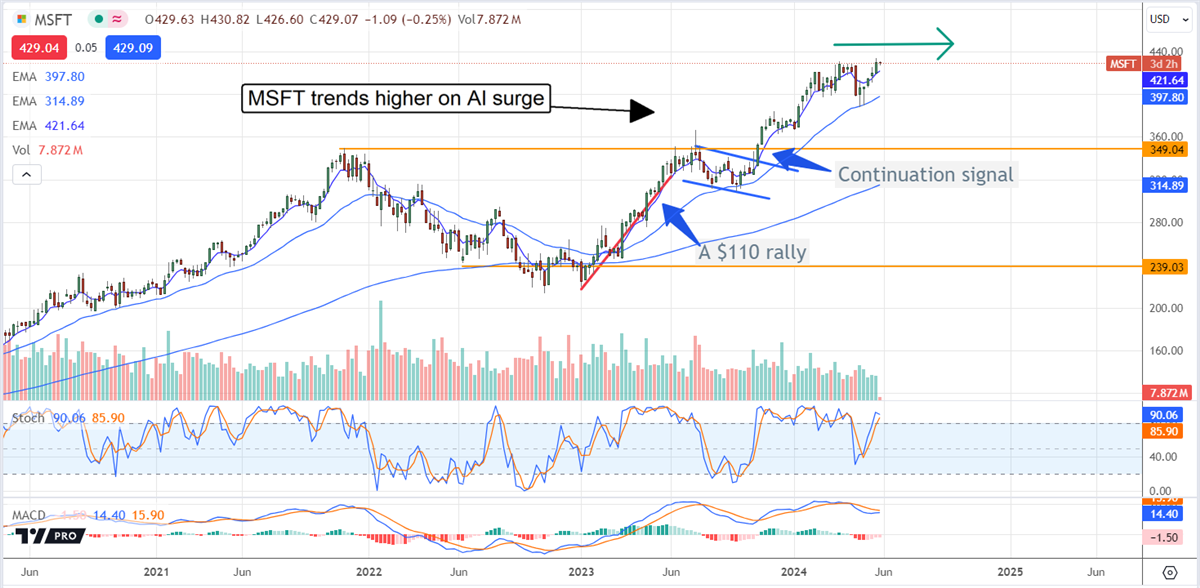
Oracle: Data is at the Heart of Everything AI
AI is all about data—the Big Data generated by the Internet and mining that data for knowledge. Oracle (NYSE: ORCL) is central to the AI revolution because of its ubiquitous database service and lean into the cloud. Like Microsoft, Oracle effected a business transition from products to subscription services based in the cloud. Today, it is a leading database and developer solutions provider across cloud instances, including its own and Microsoft’s Azure. Highlights from the first half of calendar 2024 include ramping demand for AI services, ramping development of Gen2 data centers to meet the demand, and expanding partnerships with major AI players such as NVIDIA, Microsoft, and Amazon.
